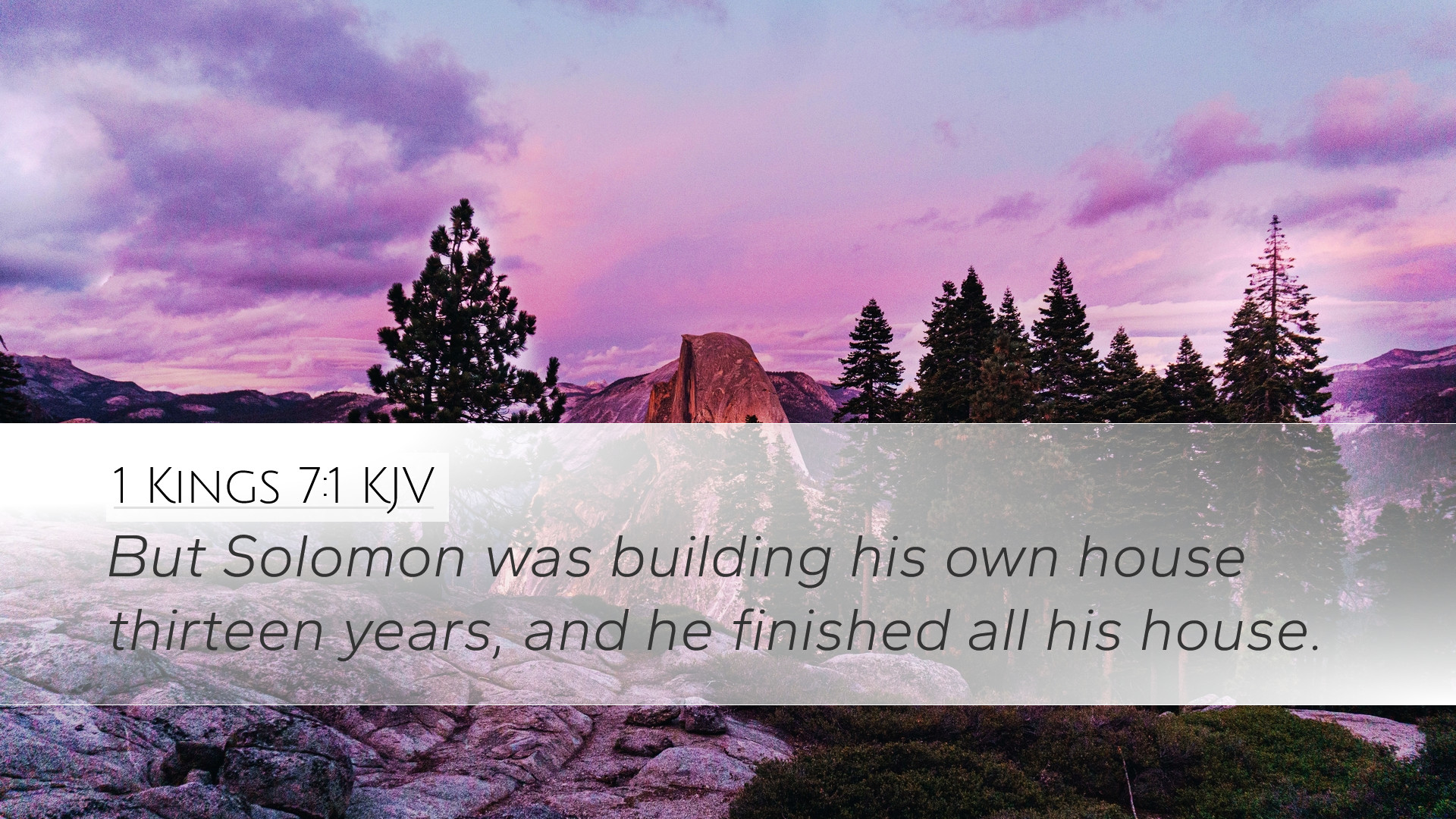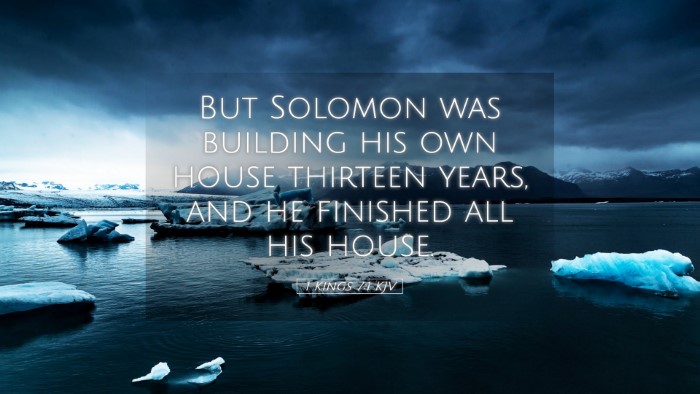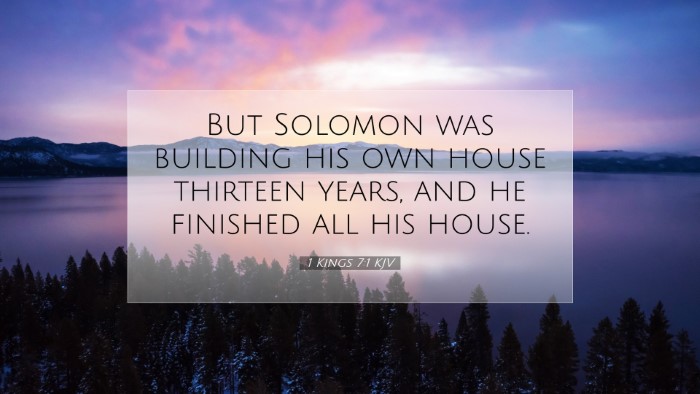Commentary on 1 Kings 7:1
Verse Context: 1 Kings 7:1 states, "But Solomon was building his own house thirteen years, and he finished all his house."
This verse marks a significant moment in the narrative of King Solomon, focusing on his construction efforts for his own palace, which took a considerable amount of time—thirteen years. Understanding its implications requires a comprehensive look at its theological and historical context.
Historical Context
Solomon's reign is noted for great wealth, international alliances, and extensive building projects, including the Temple of God in Jerusalem and his own palace. This verse illustrates both the priorities of Solomon and the broader socio-political circumstances of ancient Israel.
Theological Significance
The length of time Solomon took to build his own house compared to the Temple raises questions about priorities and devotion. While the Temple was built to honor God, Solomon's extended time on his personal palace can indicate a focus on personal grandeur and political power.
Insights from Matthew Henry
Matthew Henry comments on the significance of balance in Solomon's projects, noting that while it was important for the King to have a proper abode, it must not overshadow the worship due to God. Solomon's long construction period for his house, contrasted with the brevity of the Temple's construction, reflects an imbalance that Henry suggests could be indicative of Solomon’s growing affluence and perhaps a waning focus on spiritual matters.
Insights from Albert Barnes
Albert Barnes emphasizes the contrast in the duration of both construction projects. He notes that while Solomon took seven years to build the Temple, he took twice as long for his house. Barnes suggests that this disproportion suggests an excessive focus on personal ambition over spiritual obligation. He warns that the allure of worldly success can lead to spiritual neglect, as indicated by the time and resources Solomon invested in his palace.
Insights from Adam Clarke
Adam Clarke elaborates on the implications of the thirteen years Solomon spends building his house. Clarke posits that such a duration for a royal residence reflects not only Solomon's wealth and resources but also his ambition. He further connects this to the idea of leadership, where a king’s residence often serves as a reflection of his character and priorities. Clarke suggests that this action may serve as a warning to future leaders about the dangers of prioritizing personal achievements over their sacred duties.
Application for Pastors and Theologians
This verse and its commentary invite pastors and theologians to consider the balance between personal pursuits and spiritual responsibilities. It prompts reflection on their ministry missions and community service, reminding them that while personal and institutional goals are important, these pursuits should never eclipse the devotion and commitment owed to God’s work.
Lessons for Students and Bible Scholars
For students and scholars, the detailed analysis of this verse offers rich ground for study on leadership ethics in biblical context, the interplay between personal ambition and divine direction, and the socio-religious implications of Solomon’s reign. The reflections by various scholars provide a multi-faceted view of how to interpret this narrative and its relevance to contemporary issues in leadership and spirituality.
Conclusion
1 Kings 7:1 serves as a pivotal text highlighting not just the achievements of Solomon, but encouraging a robust dialogue about the responsibilities of leaders in biblical narratives. It compels readers to examine their priorities, making it a rich source for reflection and application in ministry and personal life.


